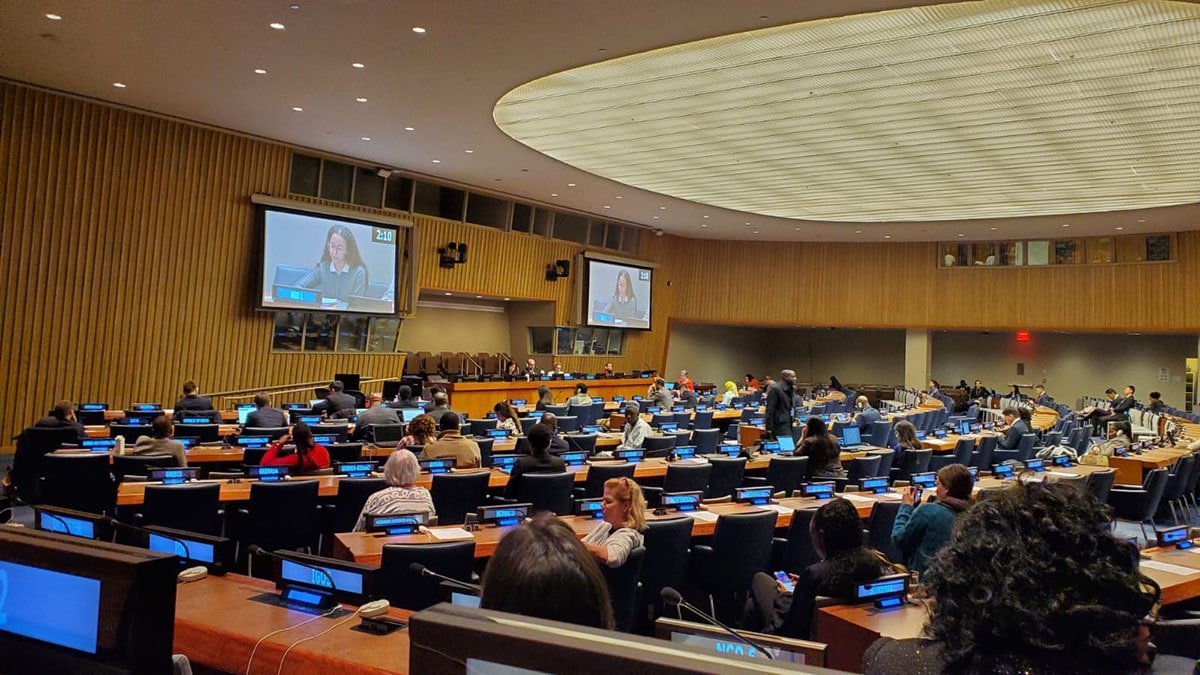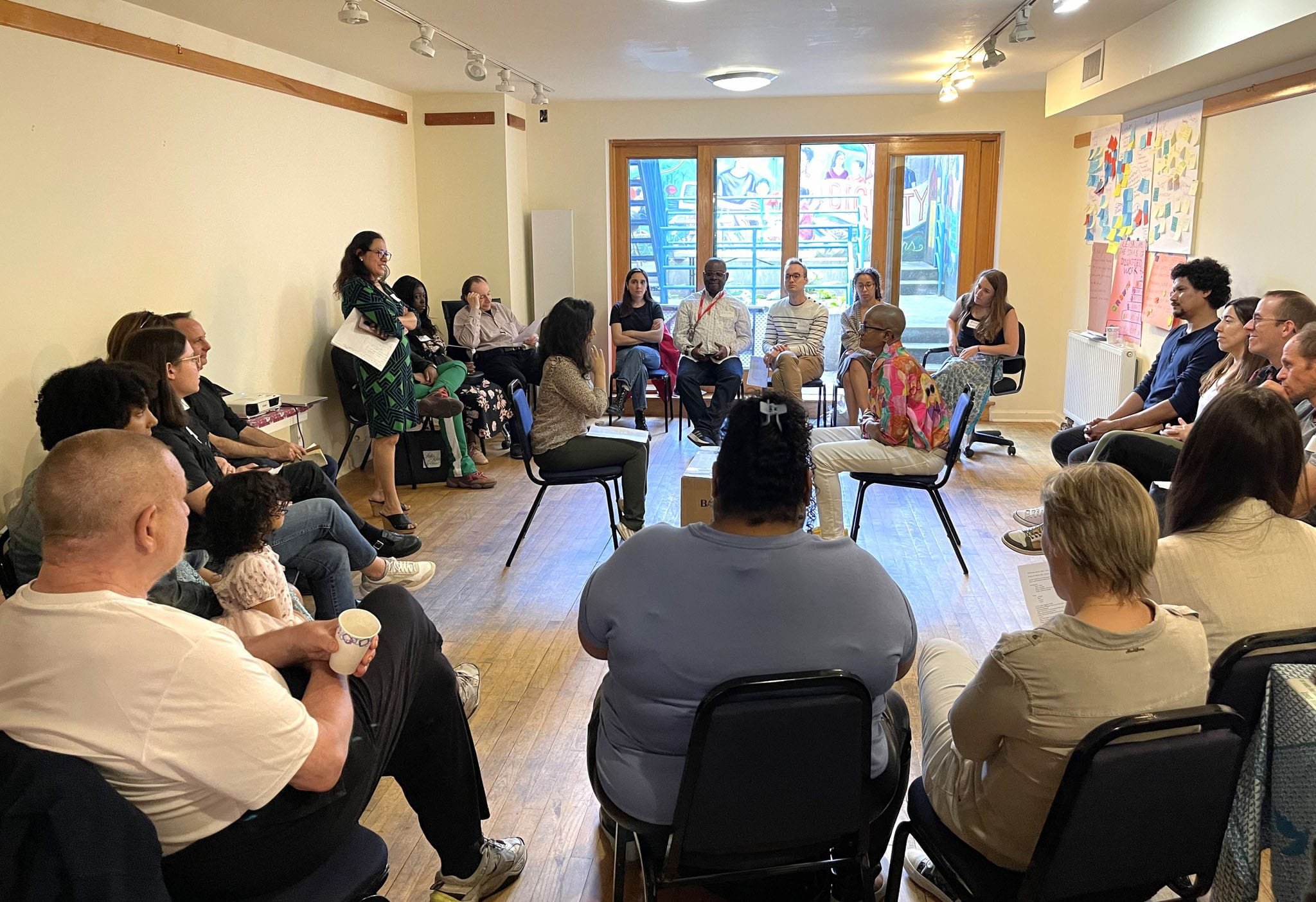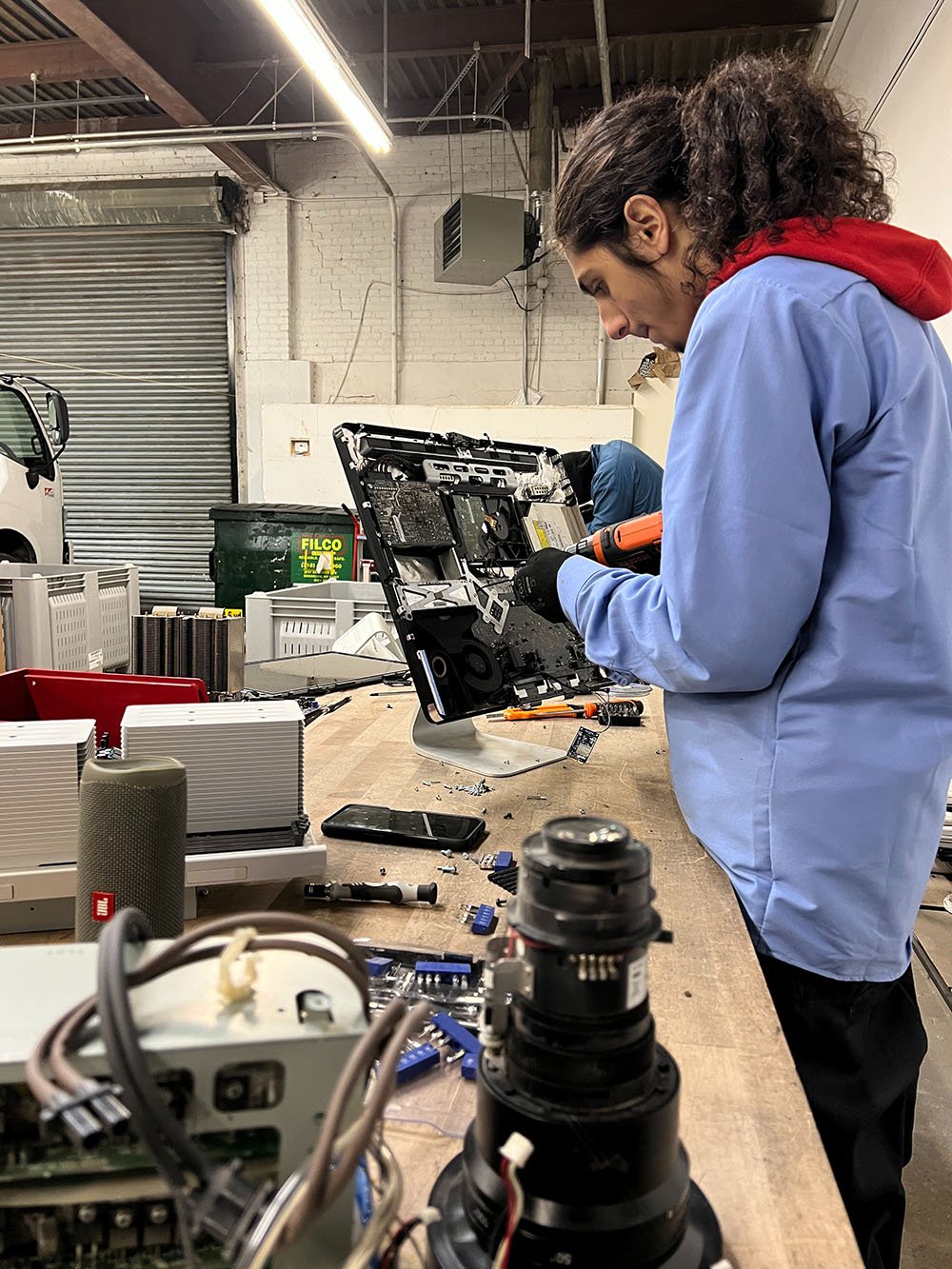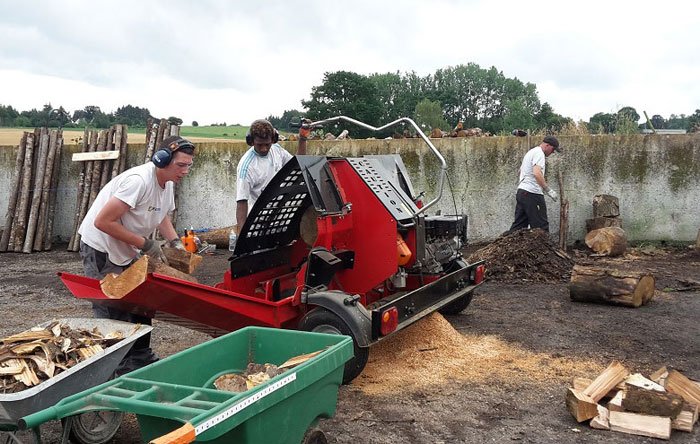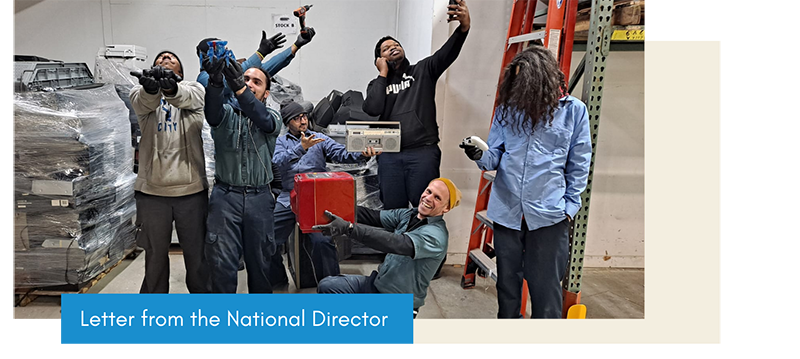Dignified Work
Dear Friends,
Jobs are needed to lift people out of poverty. “Dignified jobs” are needed. Inside this newsletter you’ll read what makes work “dignified.” But even dignified work is not enough to eradicate poverty.
A dignified life is required.
Working and Learning Together - Electronics Recycling (WALTER), is an example of “dignified work.” WALTER is an eco-social business in Brooklyn initiated by ATD Fourth World to responsibly recycle electronics and to provide employment opportunities to young adults in Brownsville who are facing obstacles to employment. WALTER offers a major step out of poverty, but, as we see from the stories below, even dignified work is not enough.
Abdul met ATD Fourth World through the Story Garden in New York when he was 14 years old. Abdul is now a 34-year-old father and a floor associate at WALTER. He missed work three times, losing much needed income, because the Housing Authority required him to wait at home for overdue repairs to be done in his apartment. Each time Abdul waited, the workers never showed. At WALTER one day, Abdul said, "I just can't win." While he was at work, the maintenance crew unexpectedly arrived at his apartment. They blamed him for not being there and placed his repairs at the bottom of the list. With most other employers, Abdul would have lost his job in addition to continuing to live in an unhealthy environment for him and his daughter.
Tiller met ATD Fourth World as a child participating in a Story Garden in the shelter where his family stayed. Today, he's 18 and a floor associate at WALTER. Twice recently he has been relocated to another shelter, causing upheaval just when his life was beginning to stabilize. Now Tiller has a very long commute and still shows up for work, while his housing situation remains unpredictable.
These two stories show that dignified work such as WALTER is needed, but it is still not enough to truly liberate a person from the oppression of poverty.
This newsletter presents dignified work as well as ATD Fourth World’s approach of integrating the nine interconnected dimensions of poverty identified through participatory research. The interplay of these dimensions now guides our programs to support all dimensions of a dignified life.
Thank you for your trust.
Guillaume Charvon
People with lived experiences of poverty want to make valued contributions to society and offer innovations to ensure decent work for all.
Decent work is productive within an environment of "freedom, equity, security, and human dignity."* When not treated with dignity at their workplace, workers can remain trapped in poverty.
Dignified work builds the Social and Solidarity economy with the primacy of people and social purpose over capital. Dignified work is a key to ending poverty.
Dignified work provides a wider, supportive environment, tailored to the individual’s circumstances, in order to help the most excluded people earn a decent wage.
Dignified work provides an environment of non-judgment which is paramount. Education and training are also necessary for the employer to be able to create a thriving workplace in partnership with employees.
Dignified work comes to people where they already are in order to be inclusive of segregated and marginalized communities.
Dignified work combats social exclusion. A job should invite people back into public life.
Dignified work must be understood in the context of a dignified life. The trauma of poverty can often mean that many people may find themselves unable to work at all.
Dignified work makes a positive impact on others and on the world.
- excerpted from the UN report "Dignified Work for All"
* from the International Labour Organization's definition of decent work.
Ways ATD Fourth World is engaged for Dignified Work:
